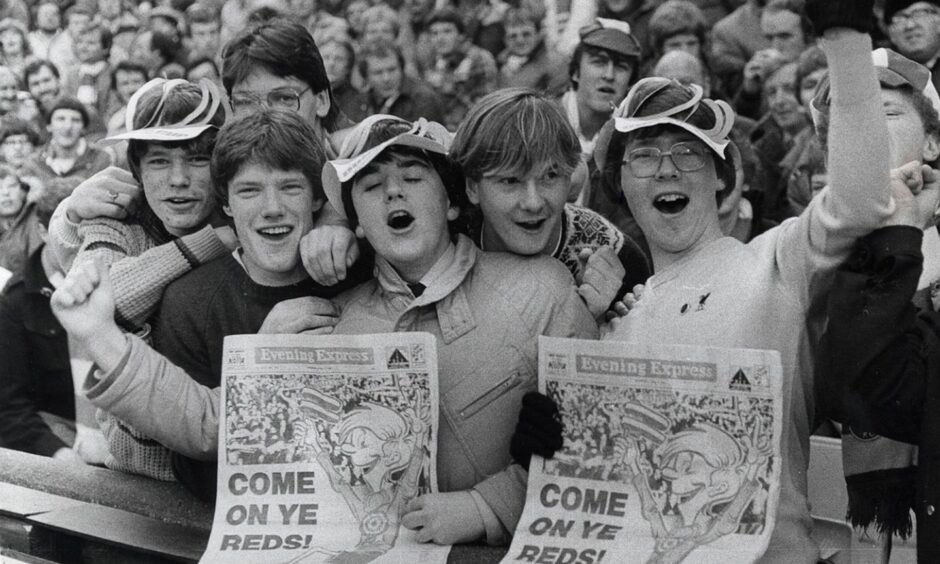
Scotland’s greatest sporting triumphs have often happened when they were tales of the unexpected. Think of Denis Law and Jim Baxter wending their way past world champions England at Wembley in 1967 or David Sole’s warriors prising the Grand Slam from the Auld Enemy in 1990.
Some might argue that Scots are happier as underdogs than favourites – just reflect on the dramatic fall of Ally’s Tartan Army at the 1978 World Cup – yet there was no trace of superiority about the Aberdeen players and management who prepared to tackle Waterschei of Belgium in the semi-finals of the European Cup Winners’ Cup in 1983.
In most people’s minds, they were clear favourites. And there had been so much euphoria in the aftermath of their stunning victory against Bayern Munich in the previous round of the tournament it’s easy to forget it happened in the quarter-finals.
All the details of the two-time comeback from adversity and remarkable turn-around in the Dons fortunes in the final 15 minutes of the Pittodrie contest have been examined in minute detail and the TV pictures are readily available to enjoy on YouTube and other social media platforms. It sent out a signal to the rest of Europe: that this Alex Ferguson-inspired collective were ready to meet and beat anybody in their path.
Who were Waterschei?
But rather less focus has been expended on the contest with Waterschei, a club who had progressed a long way from their origins in the 1920s when they were founded by local coalminers and were – in common with Aberdeen – only just breaking into the European realm. In some circumstances, given the tendency of Scottish teams to veer between stratospheric heights and Stygian depths, there might have been concerns this would prove to be another case where besting giants such as Bayern preceded an almighty fall when Aberdeen were expected to surge to success.
And yet, this was a squad which was growing in maturity and adhering to the gruelling work ethic of their Stakhanovite shop stewart Ferguson. Complacency was banished, Waterschei were analysed for any frailty or weaknesses, and the Dons were once again primed to the nth degree to demonstrate that genius is an infinite capacity for taking pains.
Often, these semis, fought out over two matches, develop into nervy, cagey affairs, motivated by the desire to avoid surrendering the initiative. Nobody wants to suffer a drubbing and one of the phrases that we’ve become used to hearing from managers at the end of the first leg is: “It’s only half time”.
But that option wasn’t available to Waterschei coach Ernst-August Kunnecke after he had watched his men being put to the sword by the Dons when the sides met at Pittodrie on April 6.
In advance, he had spoken about the benefits of being involved with an unfashionable club. His rationale was that, if they stayed under the radar, they could turn their anonymity to their advantage.
In theory, it had its merits. But, in practice, considering the destructive fashion in which Ferguson’s personnel bewitched, bossed and bothered the Belgians and established a 5-1 advantage after 90 minutes, Kunnecke was left in the unviable position of admitting that things were hopeless. Or, in his own words: “It is finished. I don’t think there is any side in the world who could take four goals off Aberdeen. They simply swept us aside.”
Both sets of fans were confident
As both sets of supporters walked to the stadium on that early spring evening, a group of Aberdeen and Waterschei aficionados engaged in some good-natured banter on Union Street. When one visiting fan said to a female Dons: “We will beat you 2-1 tonight”, ” she replied: “No, we will win 4-0”.
He looked slightly puzzled and responded: “But you don’t know anything about us. We are Waterschei”. At which point, the young woman said pointedly: “But WE are Aberdeen”. And that was the end of the conversation between the pair.
That exchange was typical of the steely conviction and faith held by so many of the Pittodrie faithful. And I know the story is true because I know that female fan. In fact, dear reader, I married her!
As ever, when chronicling the details of that momentous campaign, it pays to remember Aberdeen’s attention to detail. And, as usual in that serried season, Fergie’s instincts were on song. He recalled Dougie Bell, an impressive figure in the initial battle with Bayern, but who had been left out for the second. Was that another piece of supreme man-management or, whisper it, a mistake? Whatever, Bell inflicted a heavy toll on his rivals and, as one contemporary journalist described him, the “gangling, mercurial wizard of dribble” was in his element discombobulating his rivals.
If there was any tension inside the ground, it quickly vanished as Willie Miller’s men roared into the lead even as hapless Waterschei vainly tried to stem the flow like a string of punch-drunk boxers. Indeed, the home crowd were barely nestled in their seats than their heroes were not one-up, but 2-0 in front.
The ubiquitous Bell shimmied and feinted his way past frazzled defenders and fed on to Eric Black for the opener and Neil Simpson subsequently survived three tackles before sending a low shot into the net as the arena turned into a revivalist rally.
There were just four minutes on the clock.
When I spoke to former Aberdeen goalkeeper Theo Snelders about his days at Pittodrie and how he had grown up admiring Aberdeen even before he travelled to the north east, he mentioned that the Dons never feared anybody back in the 1980s and early 1990s. It offered a reminder that, sometimes, you can be too respectful of your adversaries. And, by talking them up, you do yourself no favours.
The Dons never suffered from that problem under Ferguson. They were tested by Waterschei at regular intervals during the first half, but held them at bay, then increased their lead with Mark McGhee polishing off another extraordinary Bell foray. Even when Larus Gudmundsson cut the deficit to 3-1 in the 70th minute, there was no panic from the hosts. It was time to ramp up the pressure anew and advance to the situation where their opponents were beaten before the second leg had even started.
That was the spark for them to launch a fresh offensive in the closing stages and it yielded another brace of goals for Peter Weir and McGhee, the second of which featured an incredible scramble where the latter player, despite lying on the ground, had sufficient savvy to scoop the ball into the net, even as his rivals looked on aghast. And Pittodrie, which was growing accustomed to these scenes, celebrated anew, with a massive outpouring of emotion which testified to the realisation: we’re going to be in the final.
Ferguson, never a man to dole out compliments lightly, said: “We had a magnificent start that changed things for them. You can’t lose a couple of goals and stick to your game plan, so the Belgians had to come out after that and it suited us.
“I could not have asked for any more from my players. Doug Bell was superb, he was tiring after a while, and we had to consolidate after they scored.
“We will adopt the same tactics as we did in the Munich tie for the return match and I think they will have to go some to beat us.”
Even at this distance, it’s impossible to ignore the juddering intensity and relentless drive of that Aberdeen collective. They had no anxiety or apprehension about routinely dominating and dismantling opponents. Either on the domestic stage or across Europe.
Nobody had any doubts that Aberdeen were poised for the greatest event in their 80-year history, but prior to the Belgium sojourn, they had to tackle Celtic in the semi-final of the Scottish Cup at Hampden Park. As the Press and Journal reported: “It turned into a rough-house with the Dons, just three days away from the Waterschei match, sustaining injuries to Gordon Strachan, Eric Black, Dougie Bell and Neale Cooper.
“Cooper had to be taken to Glasgow Victoria Infirmary, while Bell’s injury was so serious it could have a disastrous impact on his European hopes [he missed the final]. It was a credit to Aberdeen’s battling qualities that they still came out on top [winning 1-0 with Peter Weir’s 65th-minute separating the teams], but Ferguson admitted that his preparations for the Waterschei tie had been significantly affected”.
There was some revenge in Belgium
As it transpired, all four aforementioned players were missing from the Dons line-up when their opponents attained a semblance of revenge by winning the second leg 1-0 – the only hiccup in that halcyon season for Aberdeen – but the comfortable margin of the 5-2 aggregate scoreline proved that the damage had already been done in the Granite City and everybody knew it, including the Real Madrid coach Luis Molowny, who was at Pittodrie.
He said: “I was very impressed by Aberdeen and their ability, power and strength were awesome. We did not know too much about them before this, but if it turns out that we meet them in the final, then I expect it to be a very tough game.”
And so the countdown began. These were heady days of unprecedented achievements and accolades. Sometimes, fate just seems to be pulling in the right direction. And the fans bought into the fervour with a vengeance.
As the Evening Express wrote a few days before the denouement: “If someone had told us in September that the glamorous Cup winners of Europe, all the way from Scotland to the Soviet Union, from the Baltic to the Mediterranean, would knock each other out in furious competition and the great Real Madrid would be left to face the Dons in the final, we would have directed him to a good psychiatrist. But it has happened”.
And now it had, nobody was remotely inclined to shrink the challenge.
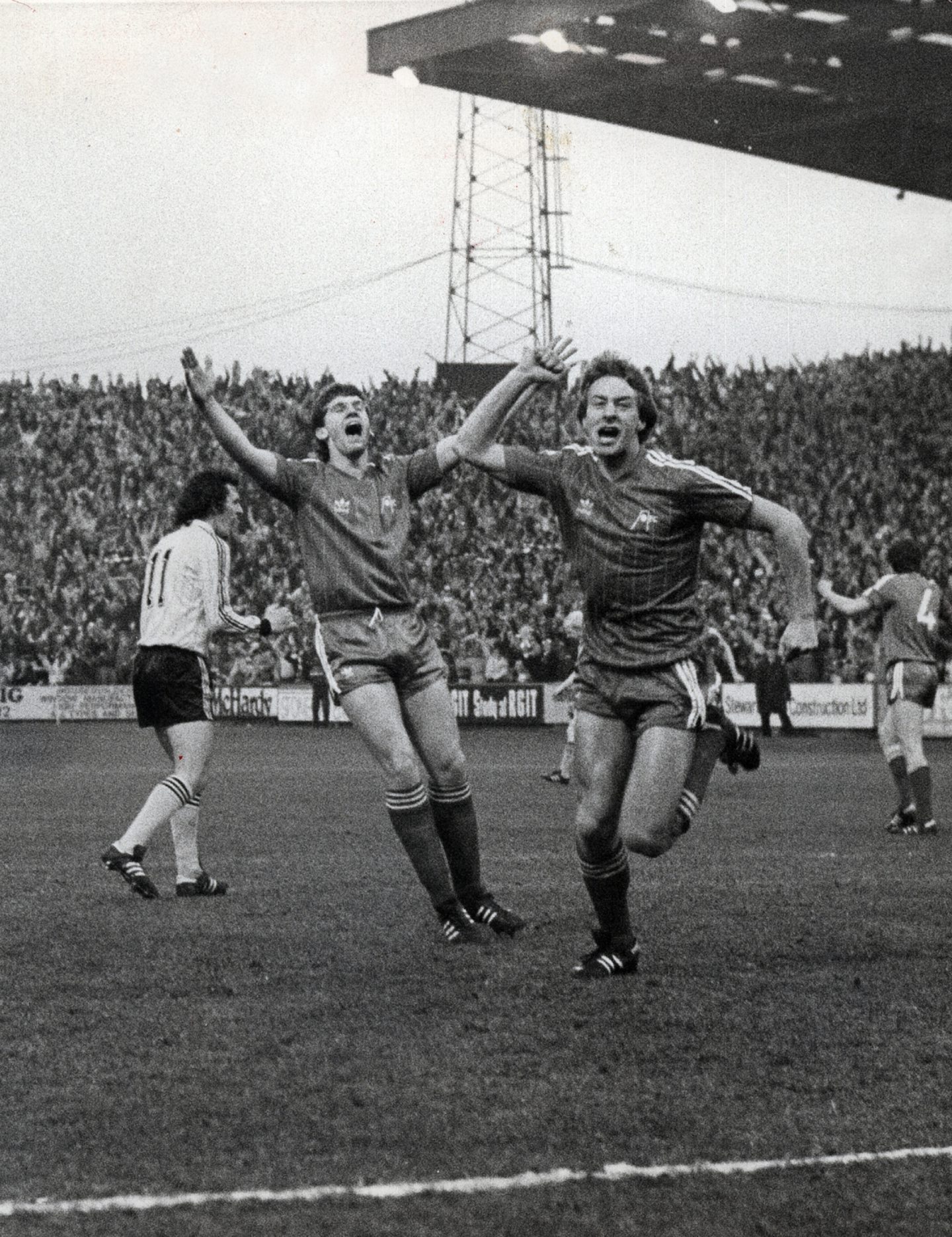
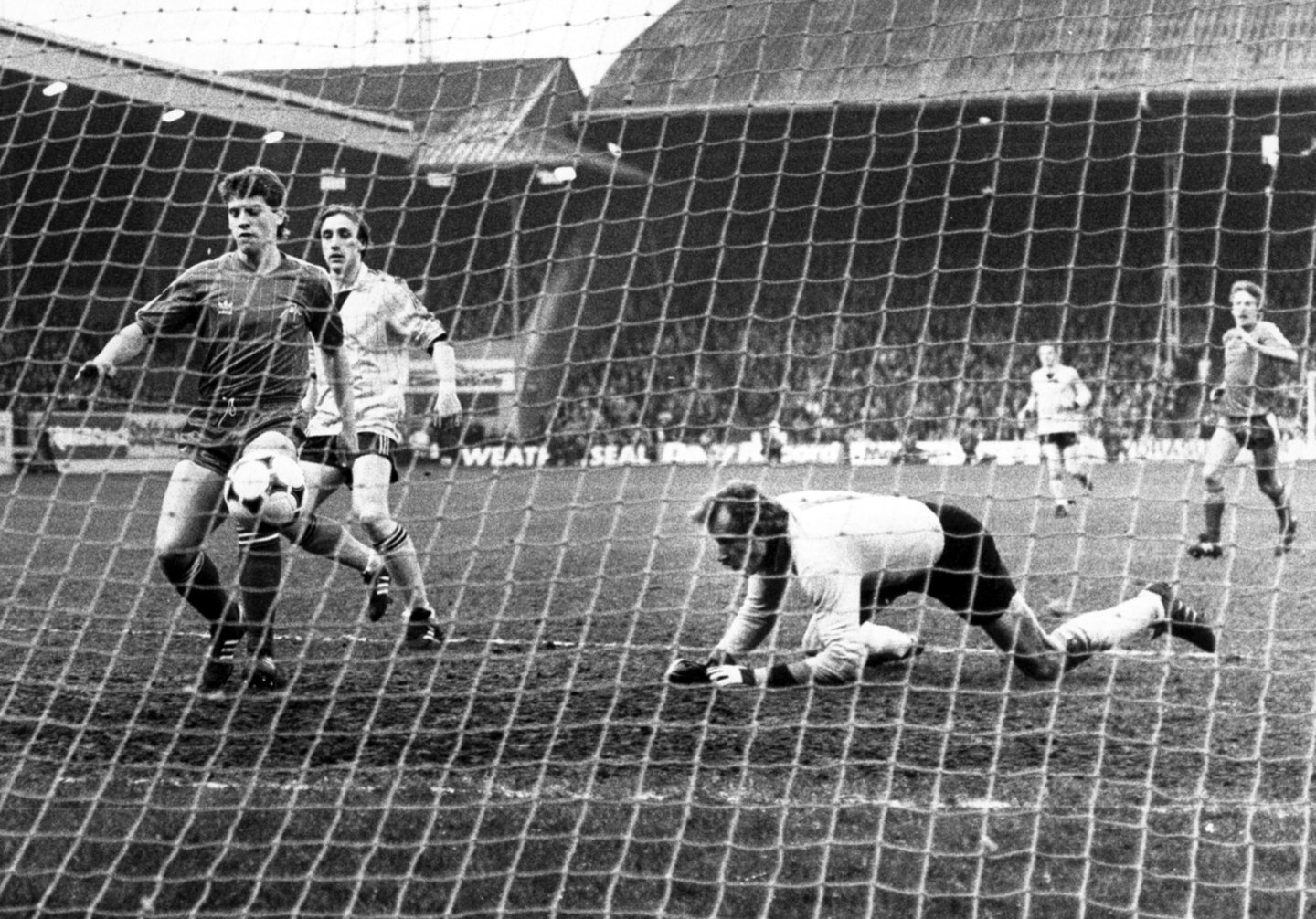
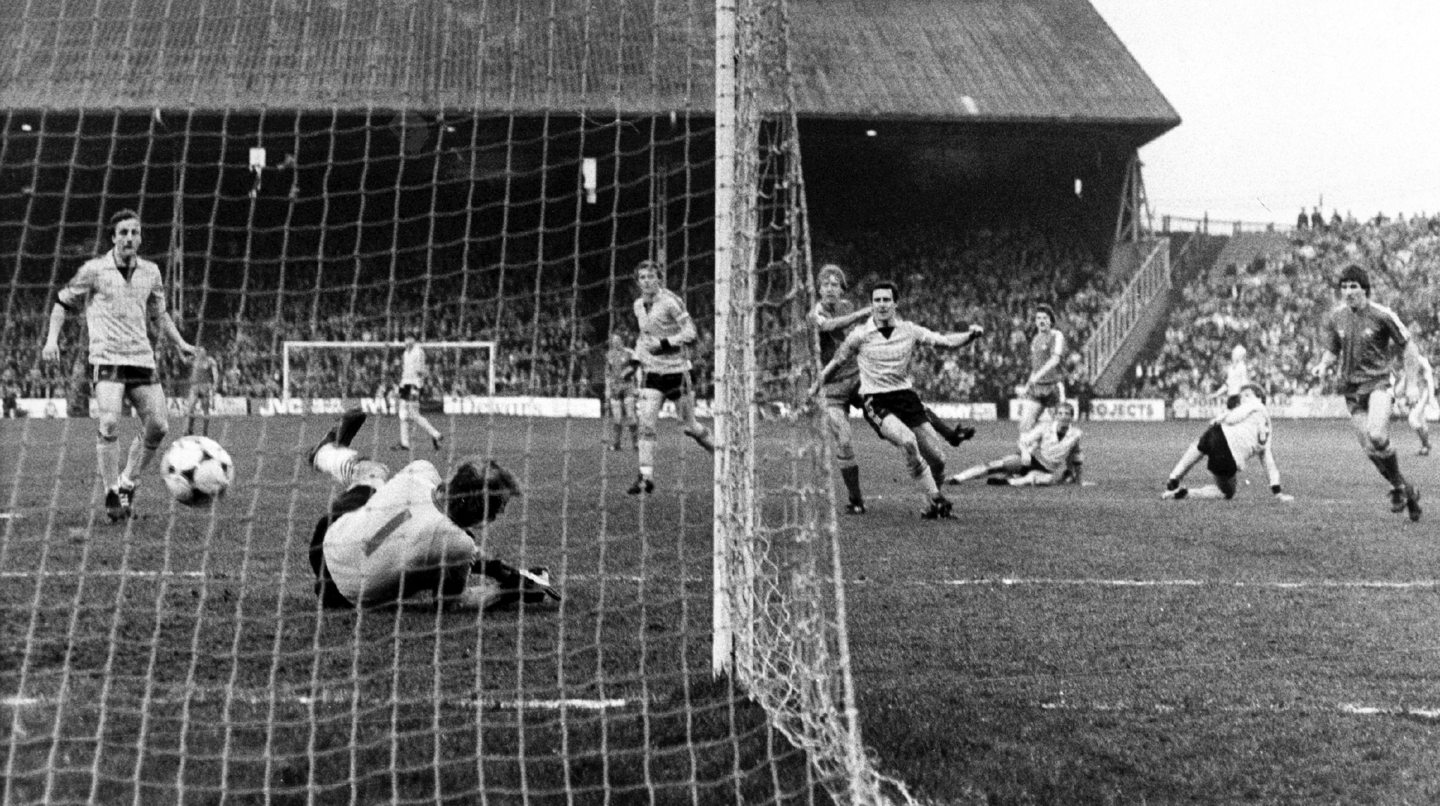
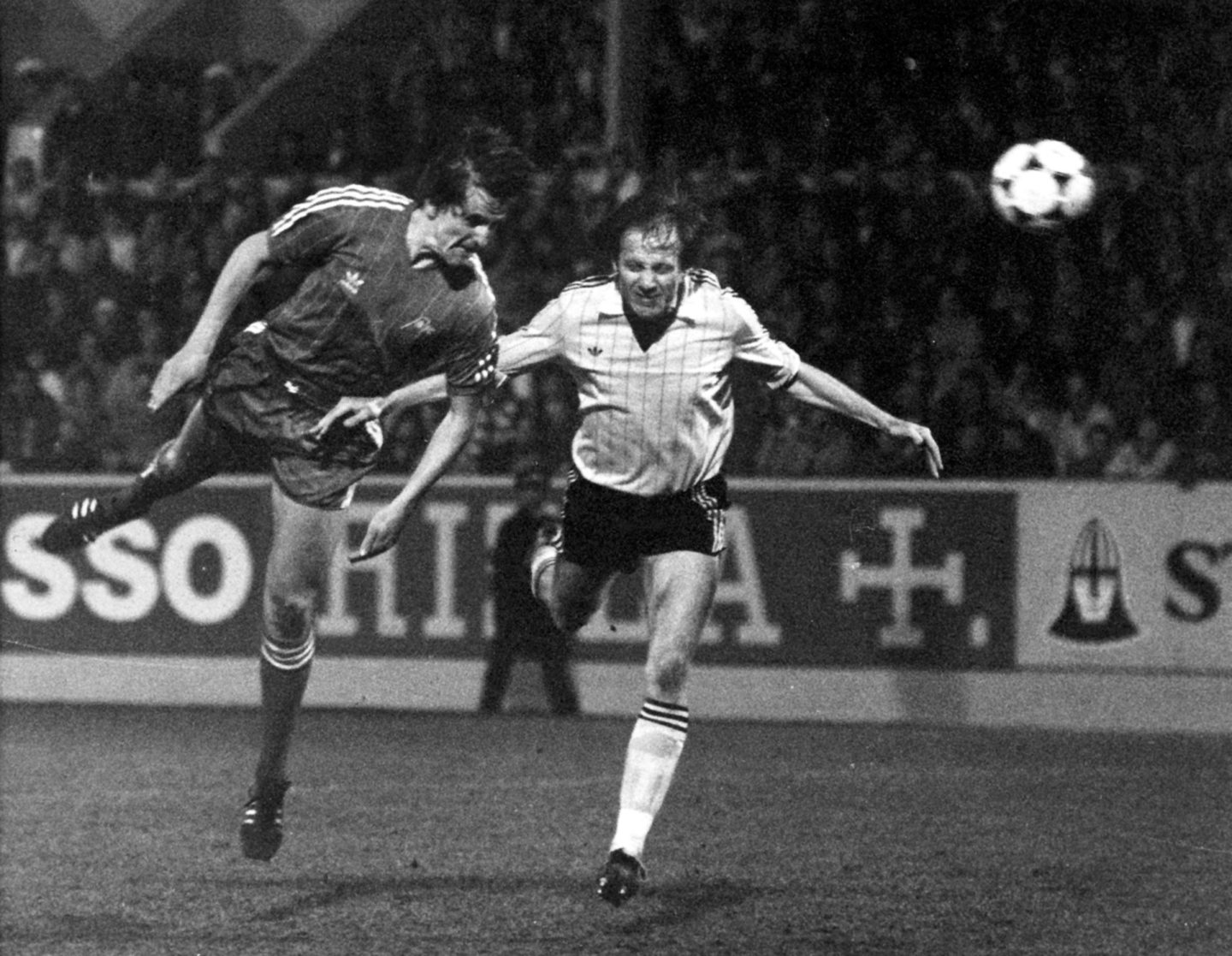
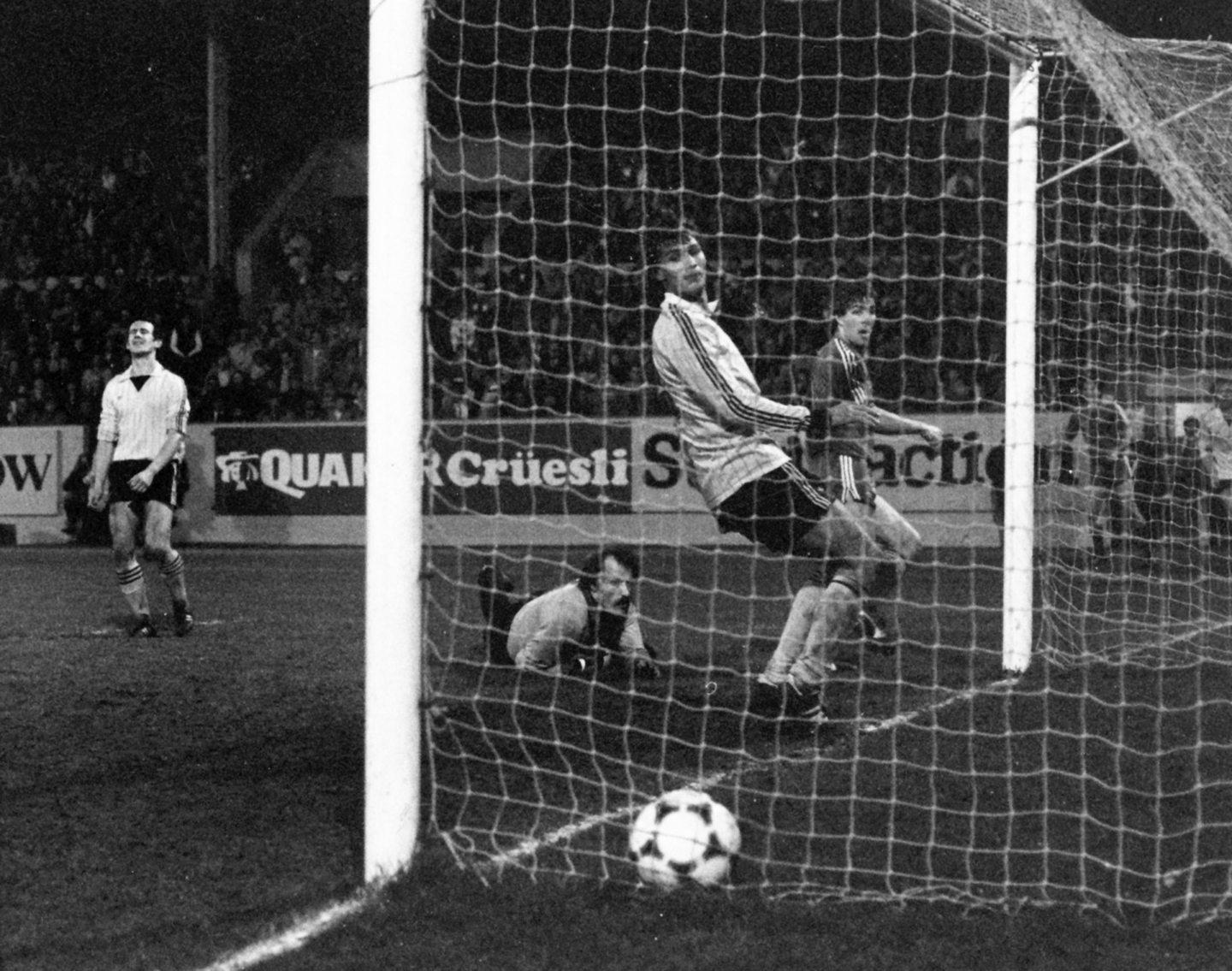
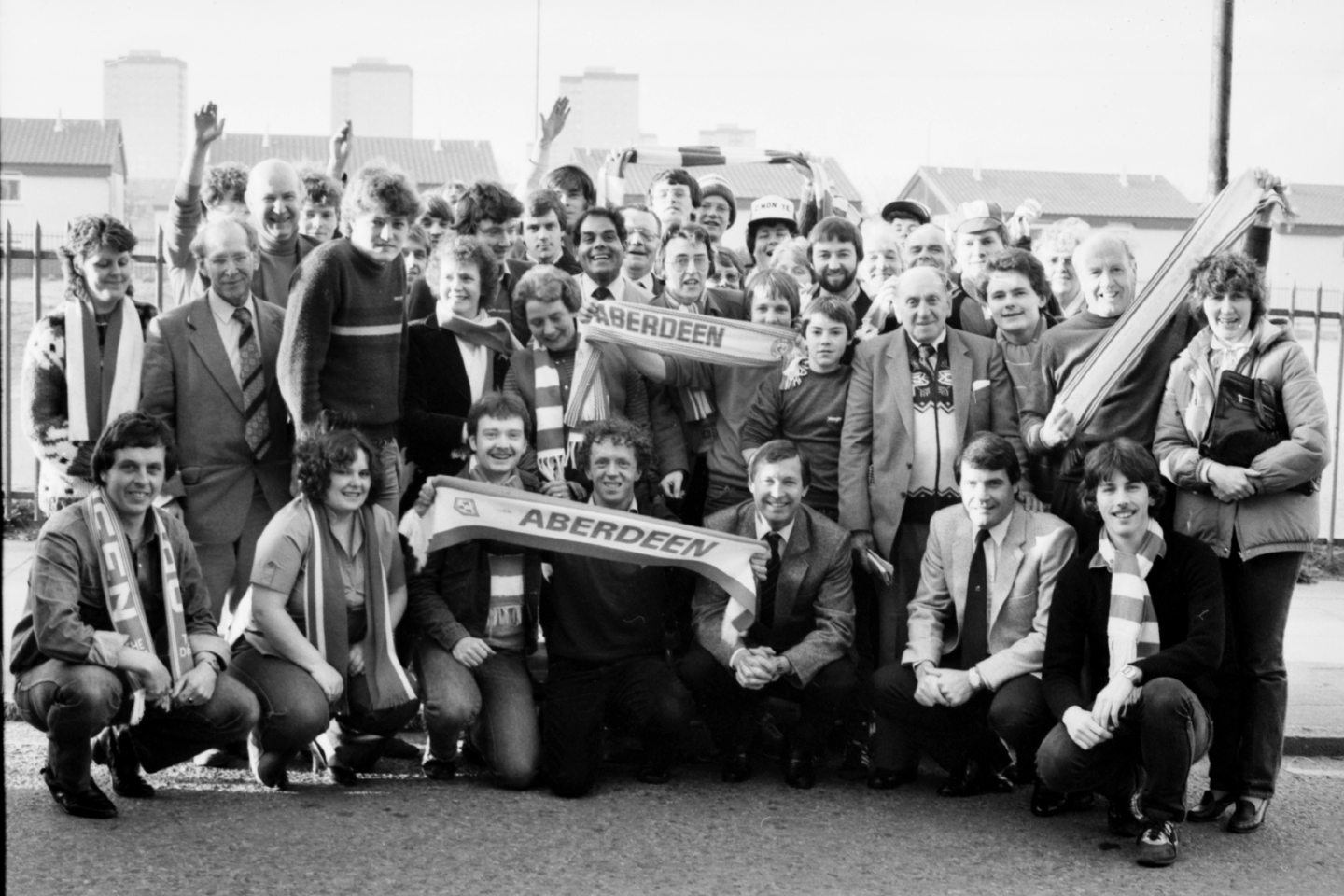

Conversation